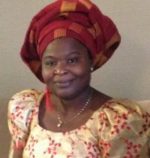Bolanle Elizabeth Arokoyo
Language Acquisition Series #1
Learning to speak is one of the most significant and visible achievements of early childhood.
The acquisition of language ‘is doubtless the greatest intellectual feat any one of us is ever required to perform’ (Bloomfield 1933:29).
The major concern of language acquisition study is to know how children acquire their first set of words.
For us to also understand adult linguistic knowledge, we need to trace its development from the early years.
To understand a little more about how language is acquired by the child is to move a step forward in unravelling the complexities of language (Kessler, 1971:7).
Considering the complexities involved in language acquisition, there is a great deal that we still need to know.
Of all the young child’s startling accomplishments, none is as impressive and mysterious as his entrance into the world of language (de Villiers & de Villiers, 1979).
Tamis-Lemonda and Rodriguez (2008) state that the entry of children into “formal language” is one of the most heralded achievements of early development.
Learning a first language is something almost every child does successfully, in a matter of a few years and without the need for formal lessons, (Pinker, 1995).
Language acquisition is the process by which the ability to use language develops in humans; it enables man to develop language use. It is a natural human activity.
Language acquisition begins very early in life and research has shown that some children start talking as early as from four to eight months (Brown 1973).
The acquisition process begins logically with the acquisition of the sound patterns of the language.
What a child learns in the course of language acquisition is not a set of utterances, but a set of rules for processing utterances (Slobin 1974:19).
Pinker (1994:2) further states that once acquired, a language is not a fixed list of sentences but a combinatorial algorithm allowing an infinite number of new thoughts to be expressed.
Language acquisition is indeed a complex process.
After discovering the meaning of certain words, the child has to determine the complex ways in which words are combined to form sentences; he has to determine the frame in which the verbs in the language occur.
Hróarsdóttir (2003:116) says that evidence from human language studies show that children learn very complex phenomena in a relatively short period of time during their first language acquisition.
Understanding the grammar of the young child means gaining a better insight into the nature of grammar in particular and language as a whole.
This lecture series will provide a synopsis into language acquisition. Excerpts for the series are majorly taken from Arokoyo (2010).
References
Arokoyo, Bolanle Elizabeth (2010). Acquisition of Yoruba Argument Structure by Pre-School Children in Nigeria. Unpublished PhD Thesis, University of Ilorin.
Bloomfield, Leonard. (1933). Language. London: George Allen and Unwin Ltd.
Brown, Roger (1973). A First Language: The Early Stages. Cambridge, Mass.: Harvard University Press.
De Villiers, Jill. G. and Peter A. De Villiers. (1979). Early Language. Cambridge, Mass: Harvard University Press.
Hróarsdóttir, Thorbjörg (2003). ‘Language Change and Language Acquisition’. In Dahl Anne, Bentzen Kristine, and Peter Svenonius (eds). Nordlyd 31.1 116-131.
Kessler, Carolyn (1971). The Acquisition of Syntax in Bilingual Children. Washington DC: Georgetown University Press.
Pinker, Steven (1994). The Language Instinct. New York: HarperCollins.
Pinker, Steven (1995). ‘Language Acquisition.’ In Gleitman, L.R., M. Liberman, and D. N. Osherson (Eds.), An Invitation to Cognitive Science, 2nd Ed. Volume 1: Cambridge, MA: MIT Press. 135-182
Slobin, Dan I. (1997). The Cross-linguistic Study of Language Acquisition: Vol. 4 and Vol. 5. Expanding the Contexts. Mahwah, NJ: Lawrence Erlbaum
Tamis-Lemonda, Catherine, S., and Eillen, T. Rodriguez (2008). ‘Parents Role in Fostering Young Children’s Learning and Language Development.’ In Tremblay RE, Barr RG, Peters RDeV, Boivin M, eds. Encyclopedia on Early Childhood Development [online]. Montreal, Quebec: Centre of Excellence for Early Childhood Development; 1-10. Available at: http://www.child-encyclopedia.com/RodriguezANGxp-Language.pdf. Accessed [28-04-09].documents/Tamis-LeMonda-
